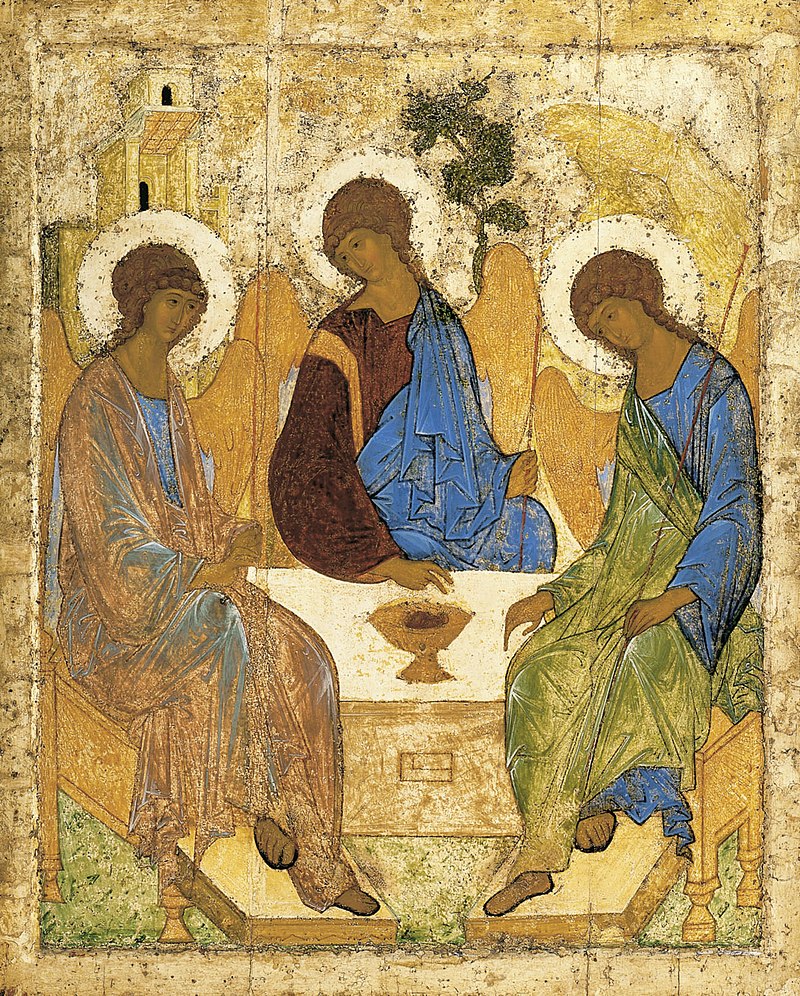Entertaining angels unaware
This is an accidental footnote, very fit for Low Sunday, to the Vicar's reflections on hospitality at Easter. Hebrews 13:2 links hospitality to strangers with our love of those close to us, both exemplifying one of the greatest of Christian virtues. I am no angel, but like all of us I have been given hugely generous and unexpected hospitality.
Newly posted to Belgrade, I was introduced by my godson to his grandmother: Sofia was lying on what was shortly to be her death-bed, but after welcoming me she turned her head to her Orthodox family and whispered, "Has she been given something to eat?" (There are many more stories of such extravagant love in Kate Adies' "The Kindness of Strangers.")
But hospitality is sometimes mysterious, as all volunteers, for instance, discover: it is not always clear which of us is guest, and which host. Roles can switch, though it may only be later that we understand how much we have been given. The discipline of learning how not to chatter to God or our neighbour but to listen and watch may sometimes be hard to learn.
Seven years in East Europe introduced me to icons, some old and valuable, and some modern, since despite the decades of Communism, there is a living tradition of painting icons, as we saw in a recent exhibition from Ukraine, where the icons were painted on ammunition boxes. One of the Madonna, in crimson, was painted for me when I left for London, an encouragement, I suspect, to stillness.
Andrei Rublev was an Orthodox monk working near Moscow in the early fifteenth century, as many of you will know, and above this letter is a reproduction of one of his most complex icons, linking the beginning of Hebrews chapter 13 with the beginning of Genesis chapter 18, and illustrating for us his vision of the Trinity. There is the human story of Abraham's, Sarah's and the servants' welcome to the three strangers, met under the oak tree near Abraham's dwelling. But the voice he hears is God's voice, and all that distinguishes the three golden-winged beings from each other is their clothing, pointing us to an understanding of who they are. The Father (on the left) in rainbow and earthly splendour as Creator, the Son (in the centre) dressed in royal and priestly robes, and the Holy Spirit (on our right) giving life to the blue heavens and seas and to the green earth. Their faces are serene, and their gestures gracious to each other and to us. We are, as it were, the fourth wall as an actor might see it, the people of God at prayer, completing the circle, and offered the banquet of the Lord.
